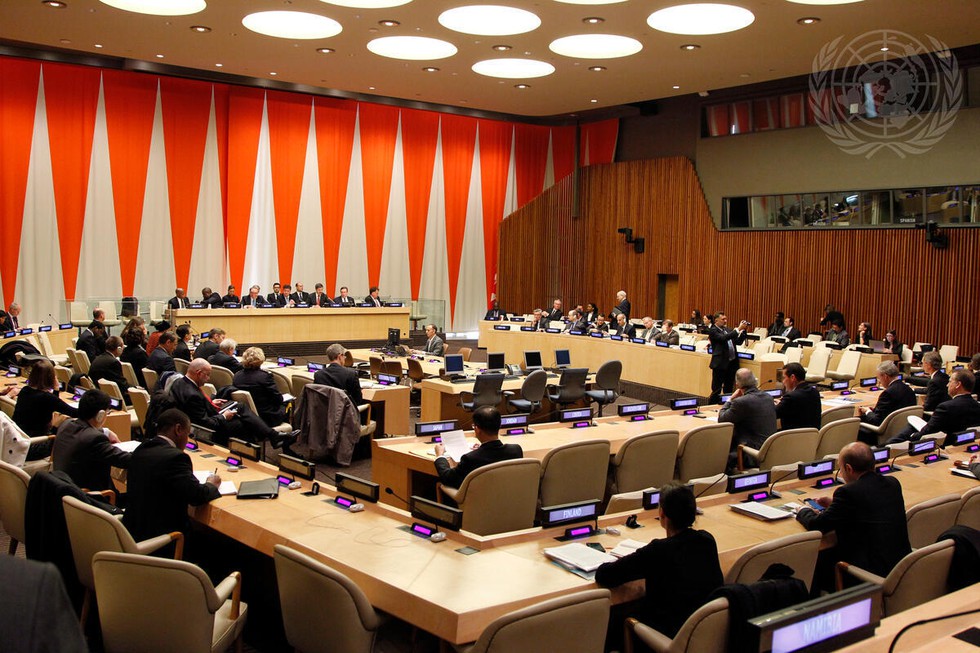About UN Economic and Social Council (ECOSOC):
- It is one of the six principal organs of the United Nations (UN).
- It was established by the UN Charter (1945).
- It is responsible for the direction and coordination of the economic, social, humanitarian, and cultural activities carried out by the UN.
- It is the UN’s largest and most complex subsidiary body.
- Membership:
- Originally, ECOSOC consisted of representatives from 18 countries, but the Charter was amended in 1965 and in 1974 to increase the number of members to 54.
- ECOSOC membership is based on geographic representation: 14 seats are allocated to Africa, 11 to Asia, 6 to eastern Europe, 10 to Latin America and the Caribbean, and 13 to western Europe and other areas.
- Members are elected for three-year terms by the General Assembly.
- Every year 18 new members are elected according to a geographical distribution. ECOSOC has no permanent members, but a country can be reelected immediately.
- Four of the five permanent members of the Security Council have been continuously reelected because they provide funding for most of ECOSOC’s budget.
- Decisions of the ECOSOC are taken by simple majority vote.
- The presidency of ECOSOC changes annually.
- ECOSOC conducts studies; formulates resolutions, recommendations, and conventions for consideration by the General Assembly; and coordinates the activities of various UN organizations.
- Most of ECOSOC’s work is performed in functional commissions on topics such as human rights, narcotics, population, social development, statistics, the status of women, and science and technology.
- The council also oversees regional commissions for Europe, Asia and the Pacific, Western Asia, Latin America, and Africa.
